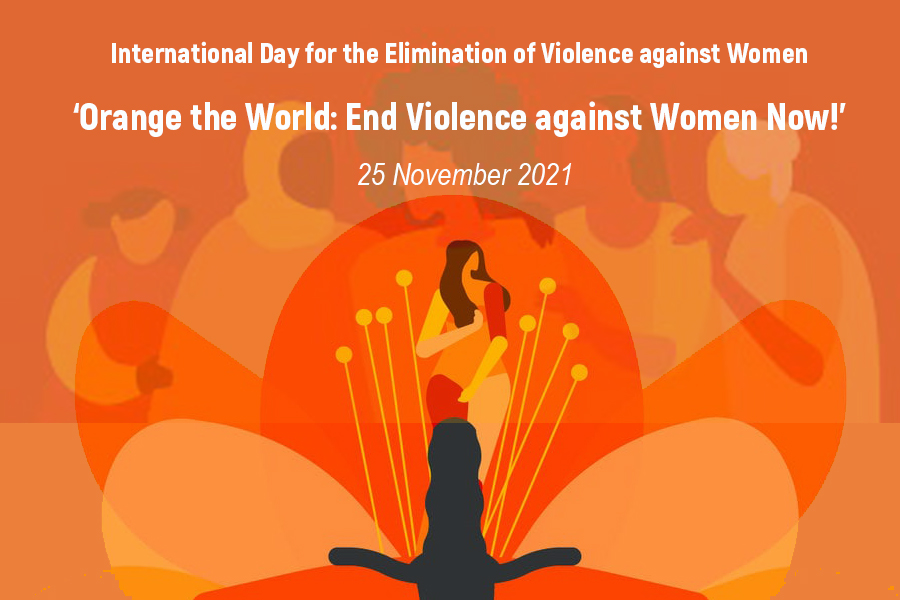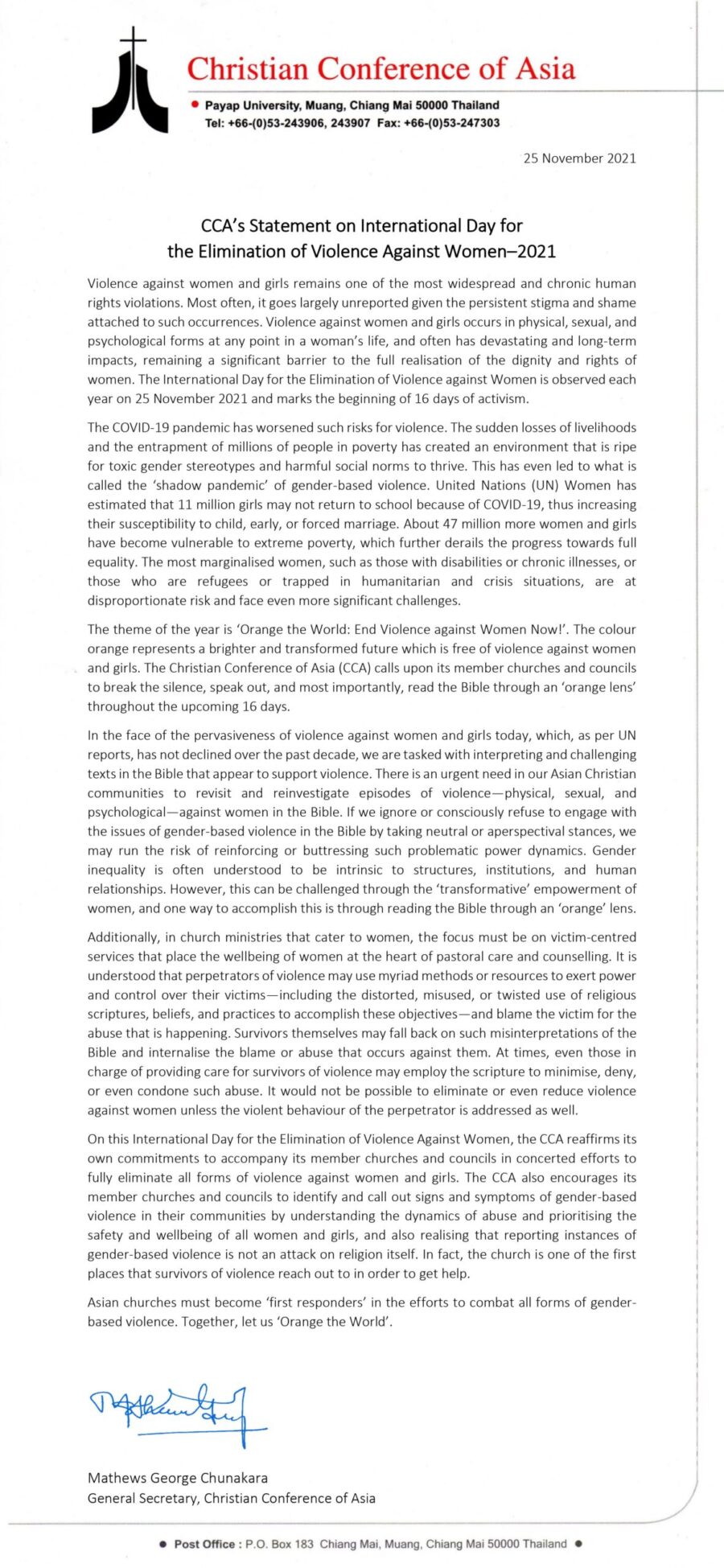CCA General Secretary encourages member churches and councils to become ‘first responders’ in efforts to combat gender-based violence on International Day for Elimination of Violence against Women

CHIANG MAI: The Christian Conference of Asia’s (CCA) General Secretary, Dr Mathews George Chunakara, released a special statement on the occasion of the International Day for the Elimination of Violence against Women, which falls on 25 November each year. In the statement, the CCA General Secretary writes, “Asian churches must become ‘first responders’ in the efforts to combat all forms of gender-based violence.”
The CCA General Secretary further called upon member churches and councils to “break the silence, speak out, and most importantly, read the Bible through an ‘orange lens’ throughout the upcoming 16 days of activism”, in keeping with the annual theme of the year, ‘Orange the World: End Violence against Women Now!’. The colour orange represents a brighter and transformed future which is free of violence against women and girls.
“There is an urgent need in our Asian Christian communities to revisit and reinvestigate episodes of violence—physical, sexual, and psychological—against women in the Bible. If we ignore or consciously refuse to engage with the issues of gender-based violence in the Bible by taking neutral or aperspectival stances, we may run the risk of reinforcing or buttressing such problematic power dynamics,” reads the statement.
The statement further continues, “The CCA reaffirms its own commitments to accompany its member churches and councils in concerted efforts to fully eliminate all forms of violence against women and girls. The CCA also encourages its member churches and councils to identify and call out signs and symptoms of gender-based violence in their communities by understanding the dynamics of abuse and prioritising the safety and wellbeing of all women and girls.”
“The church is one of the first places that survivors of violence reach out in order to get help. Asian churches must become ‘first responders’ in the efforts to combat all forms of gender-based violence. Together, let us ‘Orange the World’,” concludes the statement.











